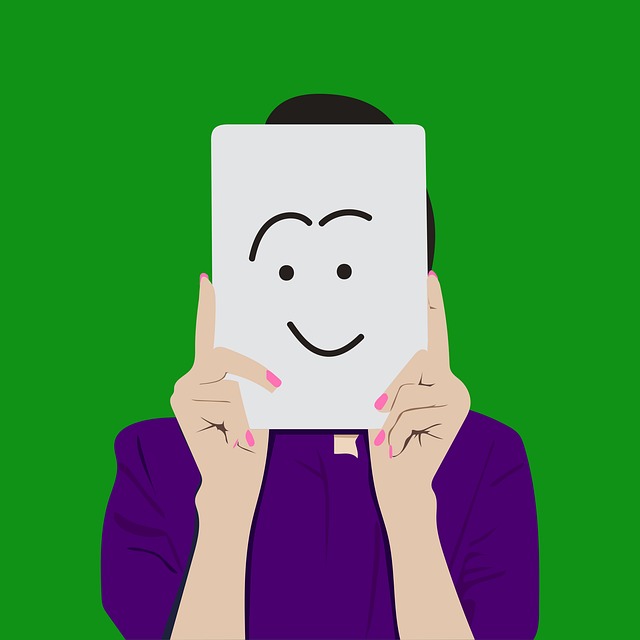Cognitive Behavioral Therapy (CBT) is a proven, effective treatment for obsessive-compulsive disorder (OCD), addressing unhelpful thoughts and behaviors. Through techniques like exposure and response prevention, CBT helps patients challenge negative thought patterns, manage anxiety, and break free from compulsive rituals, leading to improved daily life and long-lasting results. Individuals with OCD can find specialized CBT therapists through reputable resources or online directories, enhancing the therapy's effectiveness by documenting symptoms, triggers, and expectations before starting treatment.
“Unraveling the Complexity of Obsessive-Compulsive Disorder (OCD) with Cognitive Behavioral Therapy (CBT): A Comprehensive Guide. This article offers an in-depth exploration of CBT as a powerful tool in managing OCD. From understanding the disorder’s intricacies to introducing evidence-based CBT techniques, we delve into how this therapy addresses core symptoms. Learn about its proven benefits and the steps to finding the right CBT treatment. Discover how CBT empowers individuals to overcome OCD and reclaim their lives.”
Understanding Obsessive-Compulsive Disorder (OCD)

Obsessive-Compulsive Disorder (OCD) is a mental health condition characterized by intrusive thoughts, obsessions, and repetitive behaviors or rituals known as compulsions. Individuals with OCD often feel driven to perform these compulsions in an attempt to alleviate anxiety caused by obsessions. However, these routines are time-consuming, interfere with daily life, and provide only temporary relief. Common obsessions include concerns about contamination, symmetry, or doubt, leading to compulsive actions such as excessive cleaning, checking, or counting.
Cognitive Behavioral Therapy (CBT) is a highly effective treatment for OCD. It focuses on identifying and challenging the unhelpful thoughts and behaviors that contribute to the disorder. Through CBT, individuals learn to recognize their obsessions as irrational fears and develop strategies to manage anxiety without resorting to compulsive rituals. This involves understanding the connection between thoughts, feelings, and behaviors, and replacing negative thought patterns with healthier, more realistic ones.
Introduction to Cognitive Behavioral Therapy (CBT)

Cognitive Behavioral Therapy (CBT) is a highly effective form of psychological treatment that focuses on helping individuals identify and change negative thought patterns and behaviors. This evidence-based approach has proven to be particularly successful in managing various mental health disorders, including obsessive-compulsive disorder (OCD). CBT for OCD involves guiding patients to understand the connection between their thoughts, feelings, and actions, and then restructuring these patterns to reduce obsessions and compulsions.
The therapy encourages individuals to challenge and reframe irrational beliefs and fears that drive their obsessions. By learning to manage anxiety and change unhelpful behaviors, CBT enables people with OCD to regain control over their lives. This process typically involves various techniques such as exposure and response prevention, cognitive restructuring, and behavioral activation, which together help patients confront their fears and reduce the urge to engage in compulsive rituals.
How CBT Addresses OCD Symptoms

Cognitive Behavioral Therapy (CBT) is a highly effective approach in addressing and managing symptoms of obsessive-compulsive disorder (OCD). This form of therapy focuses on identifying and modifying negative thought patterns and behaviors that contribute to OCD. By helping individuals recognize and challenge their obsessive thoughts, CBT enables them to decrease engaging in compulsive behaviors.
Through structured sessions, CBT therapists guide patients to understand the connection between their thoughts, feelings, and behaviors. They learn to replace unhelpful cognitive distortions with more realistic and adaptive thinking. This process empowers individuals with coping strategies to resist performing compulsions, thereby reducing the overall impact of OCD on their daily lives.
Techniques Used in CBT for OCD

Cognitive Behavioral Therapy (CBT) is a highly effective approach for treating obsessive-compulsive disorder (OCD). The techniques employed in CBT for OCD focus on challenging and changing unhelpful thought patterns and behaviors. One key method is identifying and modifying cognitive distortions, such as catastrophizing or black-and-white thinking, which contribute to the onset of obsessions. By questioning these distorted thoughts, individuals learn to adopt more balanced perspectives.
Additionally, CBT involves exposure and response prevention (ERP). This involves gradually exposing oneself to anxiety-provoking situations and refraining from performing compulsive rituals. Over time, this process helps reduce the urge to engage in compulsions, as individuals learn that their fears do not come to pass. Through these evidence-based techniques, CBT empowers individuals to manage their OCD symptoms effectively and lead more fulfilling lives.
Benefits of CBT for OCD Management

Cognitive Behavioral Therapy (CBT) is a highly effective approach in managing and treating obsessive-compulsive disorder (OCD). This evidence-based therapy focuses on identifying and changing unhelpful thought patterns and behaviors associated with OCD, offering individuals a powerful tool to regain control over their lives. Through CBT, patients learn to challenge and reframe intrusive thoughts, reduce anxiety, and stop engaging in compulsive rituals, thereby minimizing the impact of OCD symptoms.
One of the key advantages of CBT for OCD is its ability to provide long-lasting results. By teaching individuals new coping strategies and skills, CBT empowers them to manage their disorder effectively over time. This personalized therapy also offers a practical and structured framework, helping patients understand the connection between their thoughts, feelings, and behaviors, and enabling them to make meaningful changes in their daily routines.
Finding and Preparing for CBT Treatment

Many individuals seeking relief from obsessive-compulsive disorder (OCD) turn to Cognitive Behavioral Therapy (CBT) as an effective treatment approach. The first step in this journey is finding a qualified therapist who specializes in CBT for OCD. It’s crucial to ensure they have experience and training in this specific area, as techniques may vary widely. Reputable mental health institutions or online directories can be excellent resources for identifying therapists who meet these criteria.
Before beginning CBT treatment, preparation plays a significant role in setting the tone for success. Individuals should be open and honest with their therapist about their symptoms, fears, and expectations. Keeping a journal to track thoughts, behaviors, and triggers related to OCD can be valuable. This prepares both the client and therapist, enabling them to tailor CBT techniques to the person’s unique needs and challenges.
